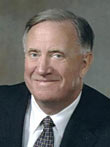Your Career Path to Success - Characteristics of Successful Teams

Developing and maintaining high-performance teams, whether they work in a single location or around the world in a “virtual” structure, is a popular topic for management these days. As businesses expand and compete in a global marketplace, the contribution of successful teams has never been more important, and they seem to share several characteristics.
Successful teams have a common purpose. Everything should begin and end with purpose, the raison d’etre for a team’s existence. The purpose provides the focal point for mobilizing the energy of team members. Without a common purpose, people will perform a lot of tasks, many of which will get you nowhere because there is no focus, no criteria for determining which activities or tasks should be undertaken. If everyone is focused on the purpose, they are more willing to sacrifice their own self interests for the sake of the team because everyone is ultimately working towards the same goal. The clearer the goal, the more meaningful it is and the easier it will be to get people moving in the same direction.
Team members work together. In a true team, there is a healthy interdependence between members. Instead of performing as a collection of individuals working on their own, they depend on each other to accomplish clearly defined performance goals. In order to create this kind of interdependence, members of the team must have complementary skills. The more multiskilled the team members, the better. Even "controlled conflict" is healthy for a team with a willingness to work together for a common good.
Teams develop a common approach. Team members must have a process for getting to the performance goals. They need a clearly defined strategy and some guidelines for how they will work together to achieve the purpose. The team members, with a leader's help, need to determine how they are going to treat each other, how they will communicate with one another, how the work will flow, etc. The more they define their expectations of one another up front, the more effective they will be.
Finally, teams members are mutually and individually accountable for achieving results. People do what they get rewarded for doing. If team members aren't held mutually accountable, it is too easy for individuals to revert back to their own self interests. It must be in the best interest of the individuals to be a good team player. As in sports, when the business team loses, everyone loses. When the business team wins, everyone wins. Mutual accountability is what builds commitment and trust.
When these four characteristics are in place, you have a solid foundation for creating synergy, which is the whole reason for establishing teams in the first place. Synergy can be defined as the optimal use of the resources that are available. It is a process that surfaces people's diverse ideas, skills, and experiences and integrates them into outcomes that are far more successful than if people were performing as individuals.
Join our newsletter
Stay up to date on all things happening at WJM Associates



